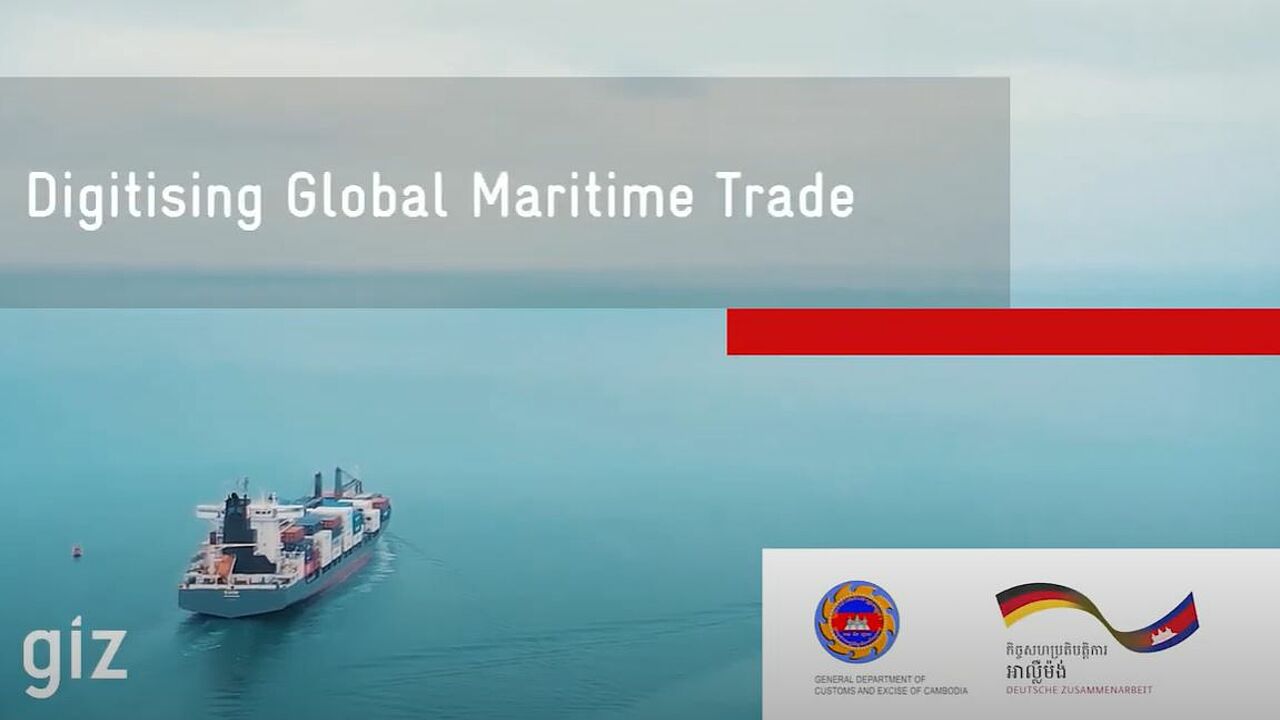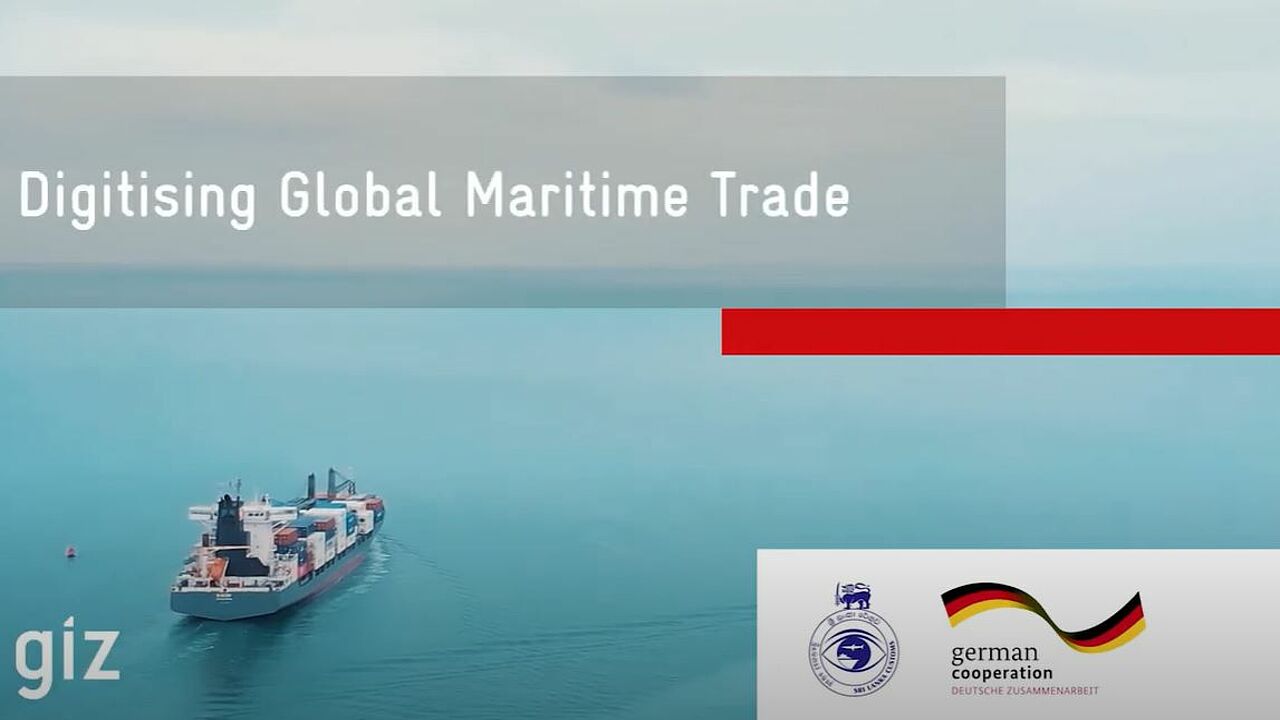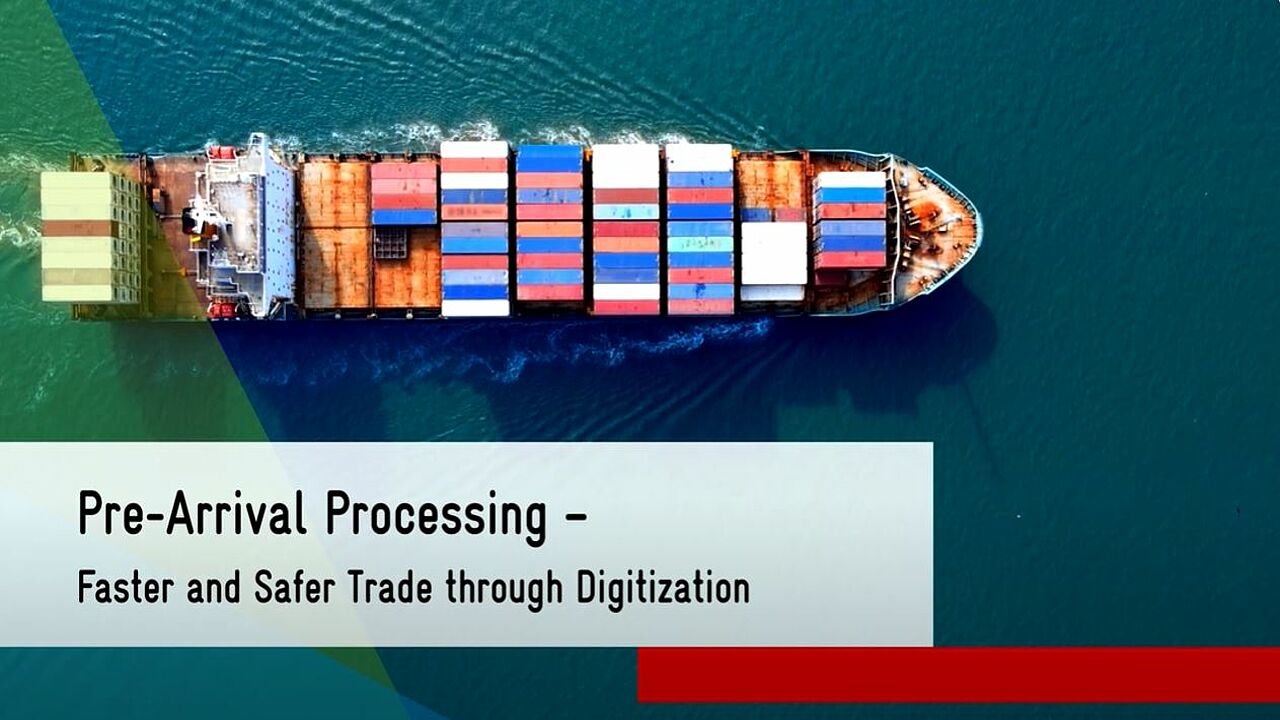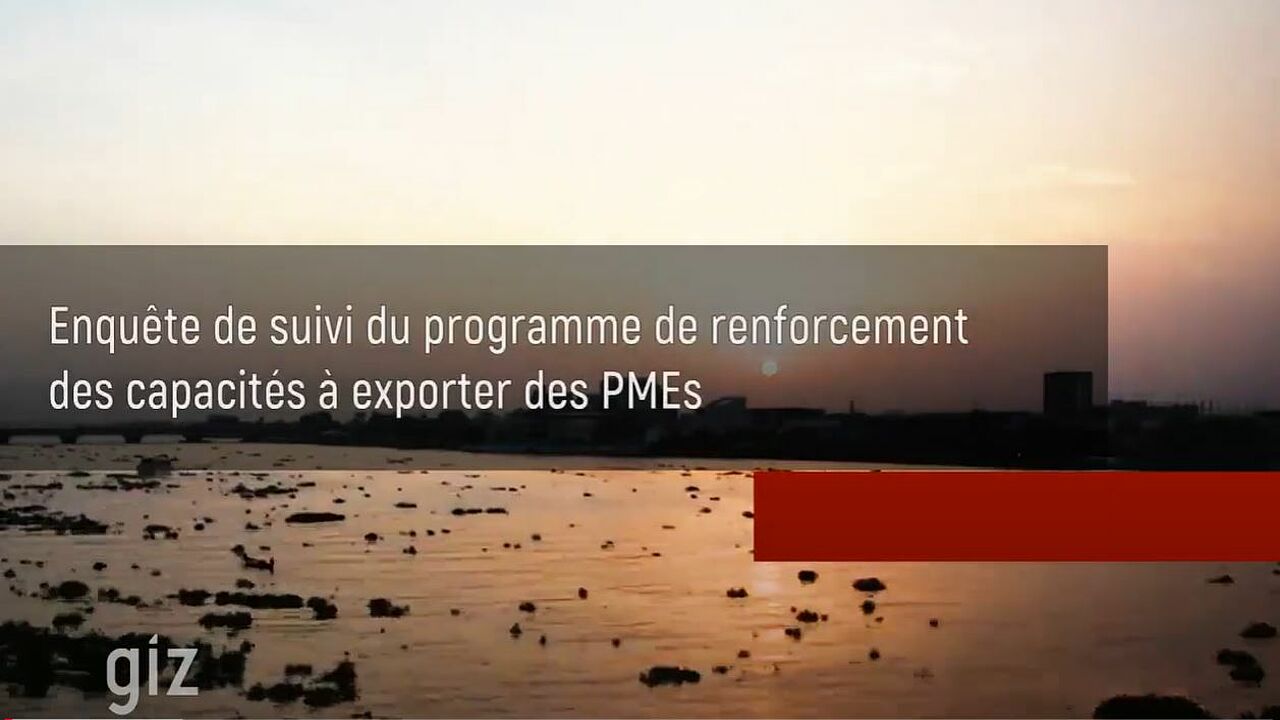German Alliance for Trade Facilitation
The "German Alliance for Trade Facilitation" is a public-private partnership. With support from the German Federal Government, companies, business associations and ministries around the world come together to make international trade faster and simpler. Currently, 27 companies from various sectors are part of the Alliance.
In the joint projects, the time and costs involved in cross-border trade are reduced significantly. The German Alliance assist developing countries and emerging economies in removing bureaucratic barriers and making customs procedures more efficient and secure, in particular through use of digital solutions.
The World Trade Organization’s Trade Facilitation Agreement creates the framework for our strategy and approach. Furthermore, projects aim at implementation of trade facilitation measures as part of regional trade agreements, such as the African Continental Free Trade Area (AfCFTA). By facilitating trade and economic development the Alliance contributes to the 2030 Agenda and the UN’s Sustainable Development Goals.
Videos
DGMT - Trade Facilitation in Cambodia

Click the button to load the content.
In the ‘Digitising Global Maritime Trade’ (DGMT) project, public and private sector partners work together to improve customs’ digital access to advance sea cargo information in Cambodia and Sri Lanka. The customs authorities can use this data to perform risk analysis and plan the clearing process of sea cargo prior to its arrival at the port. The core of the project is to provide advice on the design and implementation of digital procedures that allow for risk-based pre-arrival and pre-departure processing of sea cargo.
DGMT - Trade Facilitation in Sri Lanka

Click the button to load the content.
In the ‘Digitising Global Maritime Trade’ (DGMT) project, public and private sector partners work together to improve customs’ digital access to advance sea cargo information in Cambodia and Sri Lanka. The customs authorities can use this data to perform risk analysis and plan the clearing process of sea cargo prior to its arrival at the port. The core of the project is to provide advice on the design and implementation of digital procedures that allow for risk-based pre-arrival and pre-departure processing of sea cargo.
Sensitisation for Women in Cross-Border Trade - Participant Experience from Ghana

Click the button to load the content.
The assumption that trade policies are gender neutral have been debunked in recent times. The actual conditions on the ground prove it wrong. There are different impacts of trade on men and women due to the distinct economic roles they play. On average, women spend more time on unpaid care and domestic work than men. The restricted time availability and the limited access to education and information hinder female traders. Women bear disproportionately negative economic effects if the inequality is not addressed. It is necessary to put appropriate mitigants in place. In partnership with the Ministry of Trade (MoTI) and the Trade and Gender Sub-Committee of the National Trade Facilitation Committee, the German Alliance for Trade Facilitation organized 4 sensitization events for female traders across Ghana. The event series ‘Women in Cross-Border Trade’ was initiated in recognition of the need for gender-sensitive approaches in trade facilitation. Relevant information on trade procedures is ought to enable women and thus unlocking the full scope of their entrepreneurial potential.
Pre-arrival Processing (PAP) – Faster and Safer Trade through Digitization

Click the button to load the content.
Global trade is growing, and paper-based border processes are causing delays in supply chains. With Pre-Arrival Processing (PAP), customs information can be electronically submitted before goods arrive, allowing customs authorities to review shipments in advance. If the transported goods meet all requirements, they can be cleared immediately upon arrival, without any waiting time. This is especially valuable for time-sensitive goods, such as perishable food or medicines. PAP increases the efficiency of customs processing and is enabling faster deliveries.
DGT - Workshops for small businesses in Côte d’Ivoire (FR)

Click the button to load the content.
FR: Le projet 'Digitizing Global Trade' (DGT) a organisé plusieurs séries de formations au bénéfice de petites et moyennes entreprises en Côte d'Ivoire , en vue de renforcer leurs capacités, entre autre en matière d'emballage de produits, de processus d'exportation, de marketing numérique et de durabilité. Les entrepreneurs de divers secteurs d´activités, tels que la production d´ épices ou la transformation de manioc, reportent sur d'améliorations significatives. Ils ont amélioré leur emballage à travers de nouveaux design et de matériaux de meilleure qualité, en utilisant par exemple des étiquettes durables et des emballages conformes aux normes d'exportation. En outre, ils ont mis en œuvre des normes telles que la collaboration avec des entreprises de transport certifiées et le respect des réglementations internationales en matière d'exportation. Cela les a aidés à attirer de nouveaux clients et à augmenter leurs revenus.
EN: The 'Digitizing Global Trade' (DGT) project has organised several workshops for small businesses in Côte d’Ivoire in order to strengthen their capacities in for instance product packaging, export processes, digital marketing, and sustainability. Entrepreneurs from various sectors, such as spice processing or cassava production, report significant improvements. They have enhanced their packaging with new designs and better materials, such as durable labels and export-compliant packaging. Additionally, they have implemented standards like working with certified transport companies and adhering to international export regulations. This has helped them attract new customers and increase their revenue.